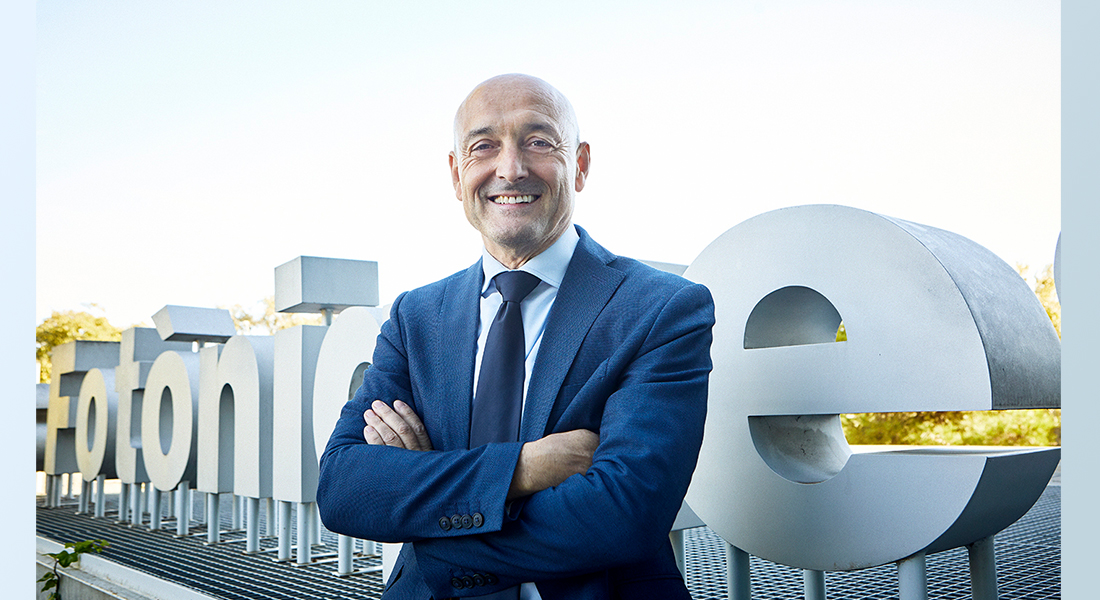
14 Jan Interview with Lluís Torner, Founder Institute of Photonic Sciences (ICFO)
What factors have driven the growth of Catalonia’s photonics industry?
Catalonia’s photonics industry has grown due to a long-term, collective effort by society, political leaders, businesses, and the scientific community. Over the past two decades, there has been a clear commitment to developing a high-tech, deep-tech, and photonics sector. This strategic focus has positioned Barcelona as an attractive destination for top researchers, including expats from the U.S., drawn by the city’s quality of life and vibrant innovation ecosystem. The first phase of growth centered on scientific advancements, patents, and innovations. Now, the emphasis is on technology development and commercialization. This shift has led to the creation of startups, three of which have already secured U.S. investment, particularly in cybersecurity innovations aimed at entering American markets.
The global photonics market exceeds $1 trillion, yet photonic chips still account for only a small fraction of this value. Unlike microelectronics, where chips dominate the industry, photonics presents a massive opportunity for growth. While major advancements are being made in the U.S. and Asia, Europe has launched its own continent-wide initiative, PIX Europe, focused on photonic chips.
PIX Europe, led by ICFO’s Dr. Pruneri, is set to drive the commercialization of photonic chips across various industries. The U.S. is also investing heavily in this field, and there are strong areas of complementarity between European and American efforts. By fostering transatlantic collaboration, ICFO aims to position Catalonia as a leader in tech-driven industries.
What cutting-edge R&D projects is ICFO developing, and how could they influence global science?
ICFO is one of Europe’s leading research institutions, holding a high concentration of European Research Council projects—grants awarded only to the most elite scientific proposals. This distinction places ICFO among the top-ranked institutions in Europe in terms of research density.
The center hosts world-class talent from over 70 countries, including leading experts from the U.S. While many institutions boast state-of-the-art facilities, ICFO’s key differentiator is the combination of cutting-edge infrastructure and elite professionals actively leveraging these resources. The broader Catalan ecosystem plays a crucial role in attracting international talent, with Barcelona’s appeal as a livable, dynamic city serving as an important factor for U.S. scientists considering a move to Europe.
What initiatives is ICFO pursuing to apply Catalonia’s R&D strengths to industrial innovation and startup growth?
A core part of ICFO’s mission is the creation of spin-offs and startups, translating deep-tech research into commercial success. These ventures are designed for global impact and actively seek investors worldwide.
Currently, ICFO has three rapidly growing spin-offs backed by U.S. investors. Moving forward, the goal is to attract even more international investment, particularly from the United States, to capitalize on the high-value intellectual property generated at ICFO. With a growing portfolio of disruptive technologies, the institution is well-positioned to strengthen Catalonia’s role as a global innovation hub.
What strategies are ICFO and its partners employing to position Catalonia as a hub for scientific talent?
Quantum technologies are shaping a new technological paradigm, with significant implications for supercomputing, cybersecurity, and technological sovereignty. The U.S., Europe, and China are leading the race, each investing heavily in quantum R&D.
The European Union’s Quantum Technologies Flagship program, the U.S. Quantum Initiative, and China’s quantum strategy collectively amount to at least $40 billion in global investment. However, one of the biggest challenges in this sector is the availability of specialized talent.
To address this, countries worldwide—including the U.S.—have implemented programs to train the next generation of quantum technologists. ICFO plays a key role in Europe’s talent pipeline, working to position Catalonia as a critical hub for quantum research and commercialization.
What opportunities exist for foreign involvement in ICFO’s projects and Barcelona’s tech ecosystem in 2025?
ICFO operates as a fully international research institution, adopting a model of “compete and cooperate.” Inspired by leading U.S. research entities, ICFO strikes a balance between global collaboration and competitive innovation.
The center maintains close ties with U.S. companies, including Corning Inc., and partners with world-class institutions such as MIT. While competition drives innovation, cooperation is essential in achieving breakthrough scientific and technological advancements. ICFO remains highly open to partnerships with American entities, aiming to develop innovations with global impact, rather than regional success.
What major challenges could photonics help address, and what positive impacts could it have globally?
Several fields within photonics are emerging as high-impact areas. Photonics for AI is one of the fastest-growing sectors, with applications that could revolutionize computing infrastructure by making AI systems faster and more energy-efficient. Clean energy is another key focus, with advances in solar energy and photovoltaics expected to enhance the efficiency of renewable energy solutions. Quantum technologies are also poised for significant transformation, particularly in quantum computing, quantum communication, and cybersecurity.
Regions that want to play a role in this technological shift have significant opportunities ahead. Catalonia is well-positioned to collaborate with U.S. entities, not only in scientific research but also in industrial applications, ensuring that photonics continues to drive innovation on a global scale.

Sorry, the comment form is closed at this time.